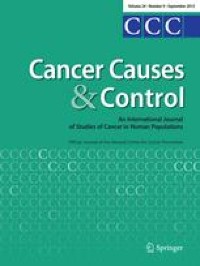|
Anapafseos 5 Agios Nikolaos 72100,Crete,Greece,00302841026182,00306932607174,alsfakia@gmail.com
Blog Archive
- ► 2022 (3010)
-
▼
2021
(9899)
-
▼
January
(1067)
-
▼
Jan 03
(82)
- Predicting positive peritoneal cytology in pancrea...
- Experience of the pancreas duodenectomy for so-cal...
- Pure large cell neuroendocrine carcinoma of the ga...
- Downregulation of lncRNA TSLNC8 promotes melanoma ...
- Cytokine-chemokine network driven metastasis in es...
- Pegylated liposomal doxorubicin-induced renal toxi...
- A new monoclonal antibody that blocks dimerisation...
- Diffuse astrocytic glioma, IDH-Wildtype, with mole...
- 5-ALA kinetics in meningiomas: analysis of tumor f...
- Immunologic aspects of viral therapy for glioblast...
- Differential gene expression in peritumoral brain ...
- Senescent thyroid tumor cells promote their migrat...
- Evaluation of the impact of renal impairment on th...
- Pingyangmycin enhances the antitumor efficacy of a...
- Genetic variants in NKG2D axis and susceptibility ...
- Colorectal anastomosis during cytoreductive radica...
- Significance of boost dose for T4 nasopharyngeal c...
- Meningiomas and cyproterone acetate
- LDLRAD2 promotes pancreatic cancer progression thr...
- Influence of VEGFR2 gene polymorphism on the clini...
- Combination of CD47 and CD68 expression predicts s...
- The use of zebrafish model in prostate cancer ther...
- Antitumor activity and mechanism of resistance of ...
- FSTL1 increases cisplatin sensitivity in epithelia...
- Endometrial cancer risk after fertility treatment:...
- Revisiting time to translation: implementation of ...
- Monocyte counts and prostate cancer outcomes in wh...
- Risk factors for de novo and therapy-related myelo...
- Correlates of non-adherence to breast, cervical, a...
- Potential mechanisms of tumor progression associat...
- Safety of radiosurgery concurrent with systemic th...
- Stereotactic radiosurgery training patterns across...
- VOICE
- Organ Transplantation
- Lipidology
- Cardiology
- Lung
- BMC Musculoskeletal Disorders
- Plastic Surgery
- Nephrology and Hypertension
- BMC Psychiatry
- Critical Care
- BMC Infectious Diseases
- BMC Urology
- Cancers of the Head & Neck
- Cardiovascular Medicine
- Reproductive and Developmental Medicine
- Urology
- Emergency Medicine
- Addiction Medicine
- Critical Care
- Bone and Joint Surgery
- Pulmonary Medicine
- MaxilloFacial
- Hearing
- AIDS
- Optometry and Vision
- Ophthalmology
- Social Psychiatry
- Dental Sciences
- Tropical Pathology
- Colorectal Surgery
- Functional Foods
- Oral Oncology
- Medical and Paediatric Oncology
- Bone and Joint Surgery
- Orthopaedic
- Translational Critical Care Medicine
- Noncommunicable Diseases
- Nursing Science
- Peritoneal Dialysis
- Noise and Health
- Otology & Neurotology
- Fertility Science and Research
- Trauma and Acute Care Surgery
- Current Oncology
- Clinical outcomes in patients with atrial fibrilla...
- Unusual onset of thyroid associated orbitopathy du...
- Prevention of postoperative bleeding after complex...
- First pediatric electronic algorithm to stratify r...
- Serum defensin levels in patients with systemic sc...
- Criticism of lockdowns
-
▼
Jan 03
(82)
-
▼
January
(1067)
- ► 2020 (4138)
- ► 2019 (2429)
Αλέξανδρος Γ. Σφακιανάκης
Sunday, January 3, 2021
Endometrial cancer risk after fertility treatment: a population-based cohort study
Subscribe to:
Post Comments (Atom)



No comments:
Post a Comment